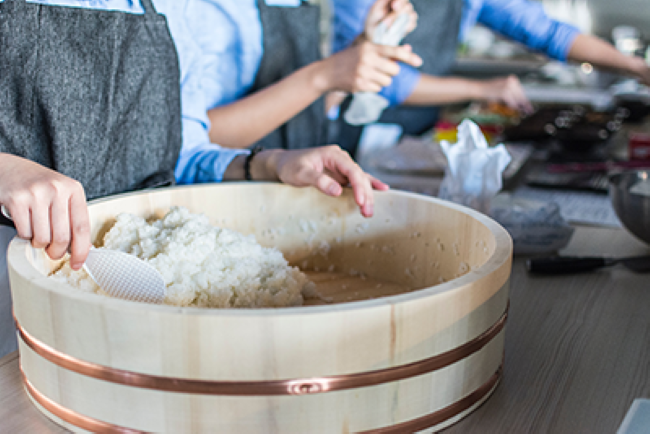「せんべい」
うるち
「おかき」と「あられ」
もち
「おかき」は
「あられ」も「おかき」と
どれも、100gあたりに
Senbei, Okaki, and Arare
In Japan, there are sweet baked rice treats called “senbei”, “okaki”, and “arare”. So, I did a little research to see what the difference is between the three. I don’t even think many Japanese people know the difference.
Senbei
They make Senbei from a type of rice called “uruchi-rice”. Uruchi-rice is the most familiar rice to Japanese people as it’s a staple food. Besides just eating it as everyday rice, we also use uruchi-rice to make sushi.
Okaki and Arare
Okaki and arare are made from glutinous rice, which isn’t the same as everyday rice. Because it’s stickier than uruchi-rice, they use glutinous rice to make okaki, arare, rice cakes, as well as okowa.
They make okaki by cracking kagami-mochi, which they put out as decoration during the New Year's holiday open and baking rice cakes (also part of kagami-mochi). Many people enjoy it as a famous snack. "Okaki" comes from the word "kaita", with an "o" added to it. It's said that people used the word "okaki " at the imperial court in Kyoto.
They make arare in the same way as okaki, but arare originated in the Nara period (710-784) and people made it by baking the rice. The difference between okaki and arare is the size. Generally, arare is smaller than okaki. In the Kanto region, they use the word “arare” but they call all of the glutinous rice sweets in the Kansai region “okaki”.
Each of these treats contains about 1.7 to two grams of sodium per 100 grams, which is 500mg of salt per senbei. So, it’s unsuitable for people with high blood pressure or those trying to avoid eating too much salt. But, when you eat it, it tastes so good that it’s hard to stop after just one piece. This treat also works as a great souvenir to bring back from Japan.
sign up for the Japanese-Online Newsletter
__..-・**・-..__..-・**・-.._ あいうえお かきくけこ さしすせそ たちつてと なにぬねの はひふへほ まみむめも やいゆえよ らりるれろ わゐうゑを ん __..-・**・-..__..-・**・-.._
#JapaneseOnline #LearningJapanese #FreeJapaneseLessons #JapaneseVideoLearning #JapaneseAnime #Anime #JapaneseFood #Bloguru

